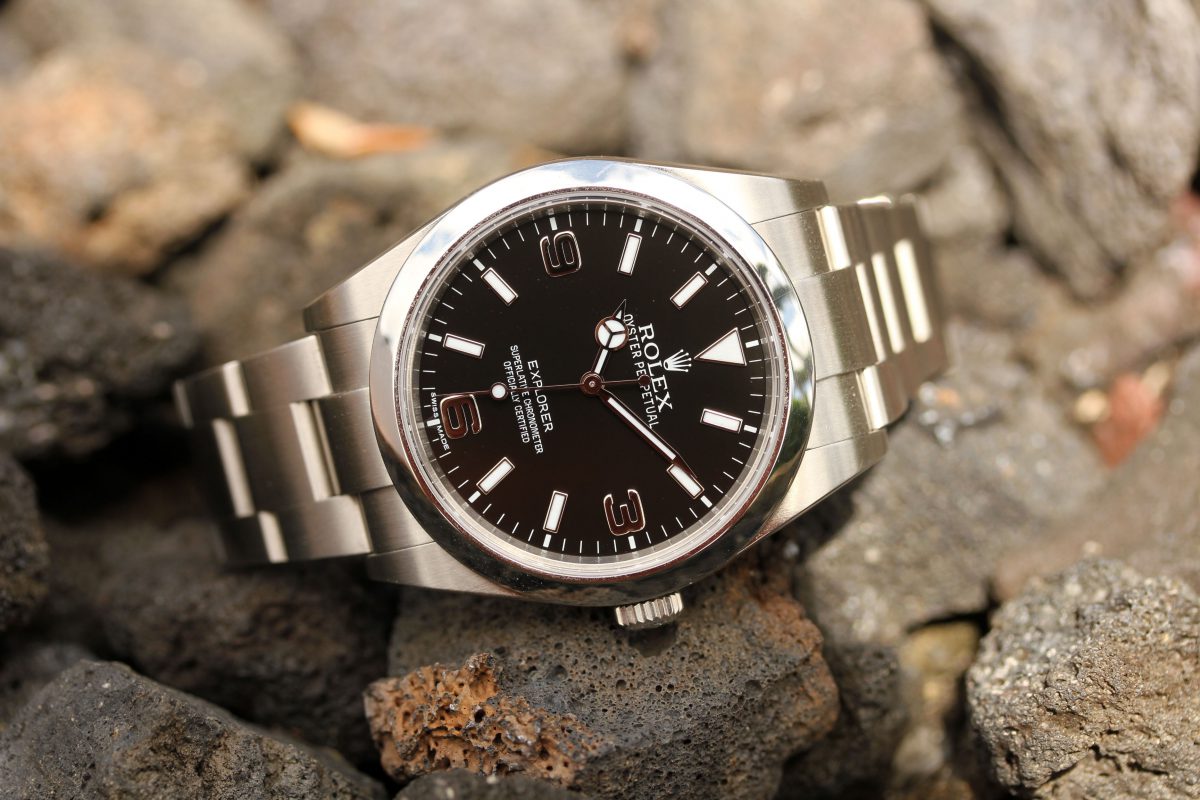An Imperfect Perfection
In a world that often chases perfection – whether in our work, our relationships, or the objects we possess – there lies a certain beauty in imperfection. This paradoxical notion is something I’ve come to appreciate deeply through my relationship with a particular timepiece: the Mark 1 version of the Explorer 1 (Reference 214270). While some may see its flaws as detracting from its value, I have found that these imperfections are precisely what make this watch not just special, but a true embodiment of “imperfect perfection.”
A Classic with Quirks
Explorer 1 is renowned as one of the quintessential tool watches, designed with adventurers in mind. With its minimalist design and rugged build, epitomizes the spirit of exploration and resilience.
However, the Explorer 1 214270 Mark 1 is not without its controversies. Two features, in particular, have sparked debate among watch aficionados: the short hands and the unlumed 3, 6, and 9 numerals. Critics argue that the minute hand should extend further to meet the minute markers, enhancing readability and aesthetic harmony. Meanwhile, the absence of lume on the key numerals is seen as a significant drawback, especially for a watch with a legacy rooted in extreme conditions where readability in low light is important.
For some, these elements are flaws that mar an otherwise perfect watch. But for me, they are the very features that give the Explorer 1 Mark 1 its character and uniqueness.

A Reflection of Life’s Imperfections
Life itself is far from perfect. It is filled with moments of regret, decisions we might wish to change, and paths we could have taken differently. Yet, it is these very imperfections that make life rich and meaningful. This watch, with its minor “flaws”, serves as a daily reminder of this truth.
There is a certain beauty in things that are not entirely perfect or complete. This watch’s imperfections make it more approachable, more human. It is not a sterile object of mechanical precision but a watch with a soul, reflecting the idea that a complete life is not about achieving flawless perfection but about appreciating the beauty in what is, including the rough edges and the unfinished chapters.
The imperfections of this watch are also analogous to the regrets we all carry in life. However, just as these watch “flaws” do not diminish its overall value, our regrets do not detract from the richness of our experiences. They are integral to our personal narratives, adding depth and complexity. My appreciation to this watch, despite – or perhaps because of – its controversies, mirrors the acceptance of life’s imperfections as essential to a complete and fulfilling existence.
Attachment, Loyalty and Identity
The emotional attachment toward an object such as a watch is not unique; it reflects a broader human tendency to form deep connections with entities, whether they are objects, sports teams, or even nations. This phenomenon is deeply rooted in the psychology of attachment, loyalty, and identity.
Fans of sports teams often remain loyal even when their team performs poorly. This loyalty is not purely rational; it is emotional, tied to a sense of identity and belonging. Similarly, nationalism often involves a strong emotional bond with one’s country, even in the face of its imperfections. People justify and rationalize their attachment to their nation, often overlooking or downplaying its flaws. In both cases, the attachment is about more than the object or entity itself; it’s about what it represents – identity, history, and a sense of belonging.
On a more extreme level, there is a psychological phenomenon known as Stockholm Syndrome, where hostages develop a bond with their captors, often rationalizing their captors’ actions as a way to cope with the trauma. While the context is vastly different, the underlying mechanism – justifying flaws to maintain a sense of connection – is similar. In the case of my watch, am I over-justifying its flaws, clinging to its imperfections as a way to deepen my emotional attachment to it? Perhaps. In any case, it highlights how the human mind can create strong bonds with even imperfect entities, often finding meaning in the very flaws that others might see as detracting from value.
The Perfectly Imperfect Companion
The Explorer 1 214270 Mark 1 is, to some, a watch with flaws. But to me, it is a symbol of life’s imperfect perfection. It is a reminder that true beauty lies not in the absence of flaws but in the presence of character, authenticity, and meaning. This watch is more than just a timepiece; it is a reflection of my life philosophy: a belief that imperfection is not something to be corrected but something to be embraced.
In a world that often demands flawless perfection, it stands as a testament to the value of imperfection. It teaches that completeness comes not from eliminating flaws but from appreciating them as part of our unique journey. Just as this watch remains one of my most cherished possessions despite its controversies, so too does life become richer and more meaningful when we accept and embrace its inherent imperfections.
And perhaps, I am indeed over-justifying its flaws. But in doing so, I find a deeper connection, not just to the watch itself but to the larger human experience of loving and cherishing what is imperfectly perfect.
